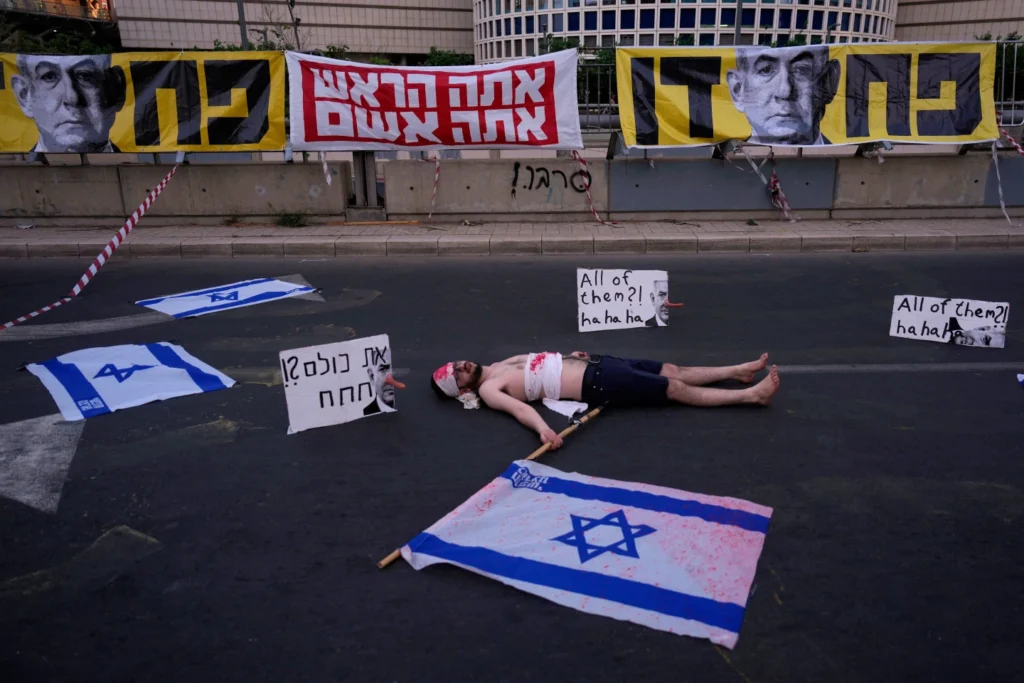RAFAH, Gaza Strip — Hamas is seeking modifications to the U.S.-backed ceasefire proposal for Gaza, a senior official told The Associated Press Saturday, amid mounting humanitarian desperation and continued Israeli airstrikes that killed at least 60 Palestinians in the past 24 hours.

The Hamas official, who spoke on condition of anonymity due to the sensitivity of the negotiations, said the group’s requested amendments concern “U.S. guarantees, the sequencing of hostage releases, humanitarian aid delivery, and Israeli troop withdrawal.” A separate Hamas statement reiterated that any deal must lead to a permanent ceasefire, a complete Israeli withdrawal from Gaza, and unhindered humanitarian access.
According to the proposal, 10 hostages would be released alive along with the remains of 18 others, in exchange for an unspecified number of Palestinian prisoners. While Israeli leaders have agreed to the U.S. framework for a temporary truce, President Donald Trump has indicated that negotiators are close to finalizing a deal.
Under the proposed agreement, fighting would pause for 60 days, and some of the 58 remaining hostages in Gaza would be freed, Hamas and Egyptian officials said. The exchange would also enable the flow of food and humanitarian aid, which has become increasingly scarce due to a near-total Israeli blockade.
As hunger intensifies, Palestinians in Gaza intercepted and emptied 77 aid trucks, according to the UN World Food Program (WFP). The trucks, carrying mostly flour, were halted by thousands of desperate civilians before reaching their destinations. A witness in Khan Younis said a U.N. convoy was stopped at a makeshift roadblock and ransacked.
Gaza’s population of over 2 million remains on the brink of famine, after nearly three months of severely restricted access to food. Though Israel recently allowed more trucks to enter, the WFP warned that aid levels are nowhere near sufficient.
COGAT, Israel’s military body responsible for aid coordination, reported 579 trucks entered Gaza over the past week—far below the 600 trucks per day that flowed during a prior ceasefire. “We need to flood communities with food for the next few days,” the WFP said, adding it has over 140,000 metric tons of food ready to feed the population for two months.
The UN has reported increasing challenges in delivering aid, including being forced to use insecure routes in areas like Rafah and Khan Younis, where armed gangs operate freely. An internal document obtained by the AP recorded four looting incidents in three days at the end of May.
On Friday, UN spokesperson Stéphane Dujarric confirmed that only five trucks were able to deliver cargo from the Palestinian side of the Kerem Shalom crossing, while 60 others had to retreat due to intense clashes.
Amid the chaos, the U.S.- and Israeli-supported Gaza Humanitarian Foundation (GHF) began distributing food. However, aid organizations have criticized the GHF for using armed contractors and militarizing aid, a claim Israeli authorities deny. Israel insists the GHF is necessary to prevent Hamas from diverting supplies—a charge the UN disputes.
Israeli strikes continued throughout Gaza, killing at least 60 people, according to the Gaza Health Ministry. Casualties included a family of three in Gaza City, six people in a displacement camp in Khan Younis, and others in Rafah and northern areas.
Weam Fares, a spokesperson at Nasser Hospital, confirmed the dead included children and parents. The Israeli military said it had targeted “dozens of terror sites” and reported several projectiles fired from Gaza landed in open areas.
The conflict, now nearing 20 months, began on October 7, 2023, when Hamas attacked Israel, killing around 1,200 people, mostly civilians, and taking 250 hostages. Of the original captives, 58 remain in Gaza, though Israel believes at least 35 are dead.
To date, more than 54,000 Palestinians—primarily women and children—have been killed in Israeli attacks, according to the Gaza Health Ministry, which does not differentiate between civilians and combatants.
As negotiations stall, families of Israeli hostages are urging Netanyahu’s government to secure a full ceasefire that would free all captives. In a joint statement, they warned that partial agreements risk leaving loved ones behind. “If a partial deal is signed,” they said, “the Prime Minister will be sentencing the rest to death.”



